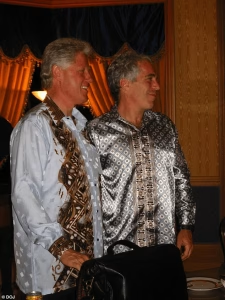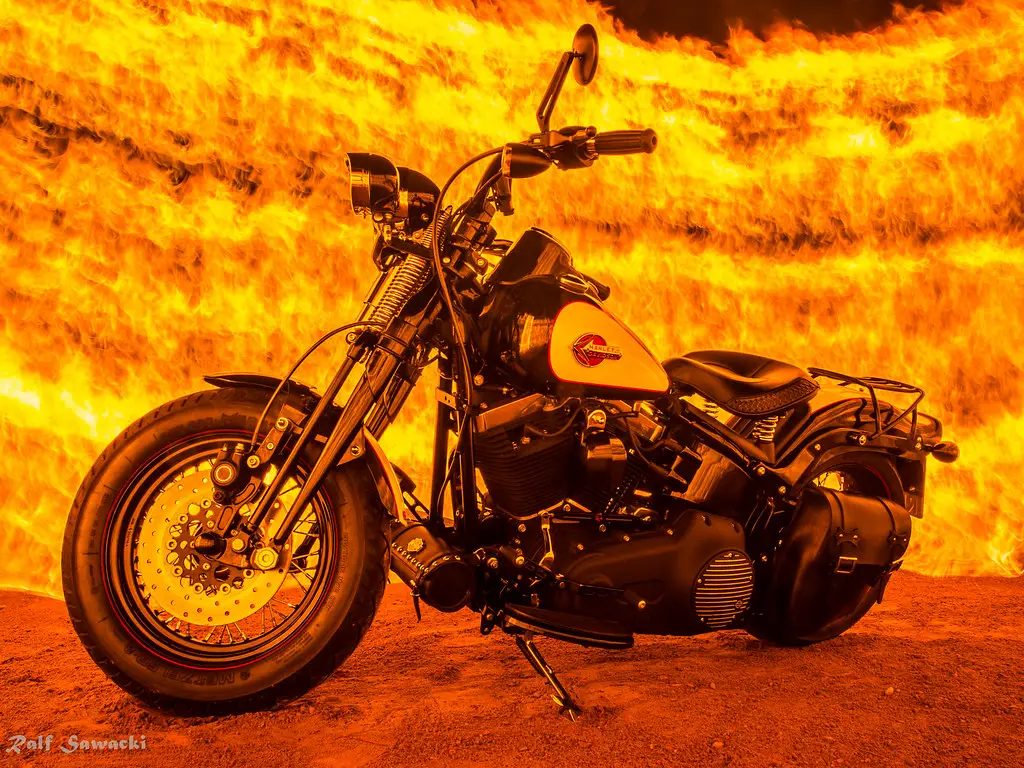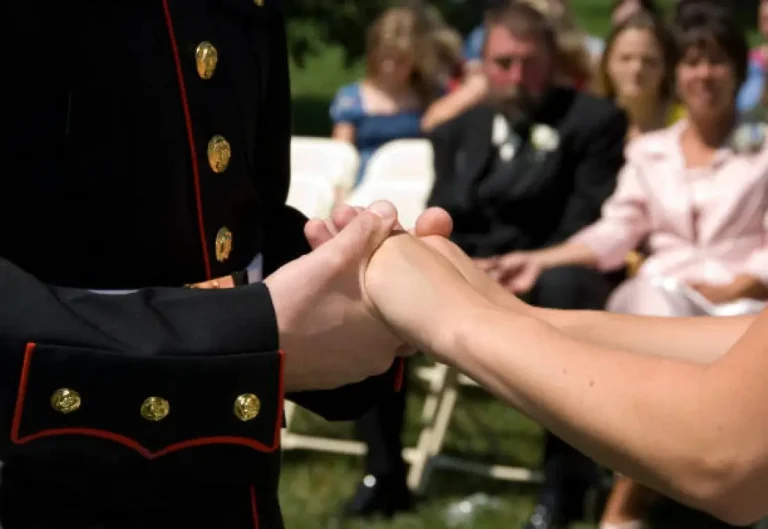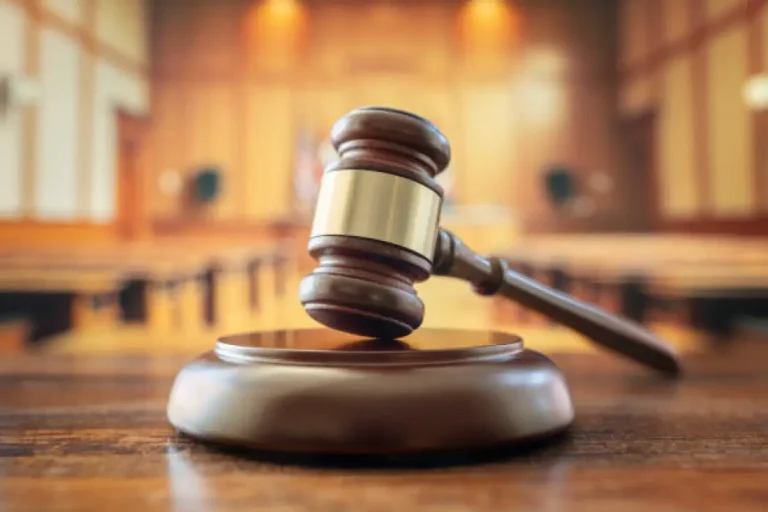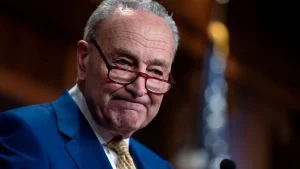Brotherhood Beyond Death: How a Community United Against Prejudice
The phone call came at 2:17 AM on a Tuesday, the kind of call that instantly divides your life into “before” and “after.” My brother Tom had lost his battle with cancer at fifty-four, three years after surviving his third tour in Iraq. By dawn, I was driving across two states to handle funeral arrangements for the man who had raised me after our parents died, the Marine who had come home broken and spent the last decade of his life helping others heal.
What I discovered when I returned from burying my brother would test everything he had taught me about honor, justice, and the power of community in the face of institutional cruelty.
I came home from the cemetery to find Tom’s prized 1975 Harley-Davidson Shovelhead—the motorcycle we had rebuilt together as part of his recovery from combat trauma—reduced to charred metal and melted chrome in the exact parking spot he had faithfully paid for every month for eight years.
The Violation
The apartment complex property manager, Derek Williams, stood beside the destroyed motorcycle with what could only be described as a satisfied smirk. In his hand was an eviction notice bearing my name, despite the fact that I was a legal occupant under Tom’s lease agreement.
“Biker trash tends to attract more biker trash,” Derek announced loudly enough for the other tenants watching from their windows to hear clearly. “This complex doesn’t need that element now that the original problem has been… resolved.”
Tom had lived in Meadowbrook Apartments for eight years without a single late payment or noise complaint. He had helped elderly neighbors carry groceries, fixed cars for struggling single mothers, and volunteered to shovel snow from walkways during winter storms. Yet the moment he died, the property management had apparently felt free to destroy the most precious possession he owned.
“That motorcycle was a classic restoration worth over thirty thousand dollars,” I said, my voice surprisingly steady despite the rage building in my chest like a physical pressure.
Derek shrugged with theatrical indifference. “Prove it. As far as anyone knows, some vandals destroyed an abandoned vehicle. Real shame there aren’t any security cameras covering that particular corner of the parking lot.”
The same corner where Derek had deliberately assigned Tom’s parking space, despite closer spots being available near the building entrance. The same corner where Tom had been forced to walk an additional hundred yards on legs damaged by shrapnel, because Derek didn’t want the “biker image” visible to prospective tenants.
The Therapeutic Machine
I knelt beside the still-warm wreckage, running my fingers over metal that had once gleamed like a mirror. Tom had spent two years meticulously rebuilding this Shovelhead after returning from his final deployment. Every bolt, every gasket, every carefully restored component had represented a piece of therapy for wounds that went far deeper than the physical scars marking his body.
When the nightmares from Iraq became overwhelming, Tom would work on the motorcycle. When chronic pain from his injuries flared beyond tolerance, he would polish chrome until he could see his reflection clearly again, until the precision of mechanical restoration helped organize the chaos in his mind.
The bike wasn’t just transportation—it was the physical manifestation of his healing process, a tangible symbol of his determination to rebuild himself piece by piece after war had taken so much away.
“You have forty-eight hours to remove this mess,” Derek continued with bureaucratic coldness. “And I want you out as well. Tom Williams was the leaseholder. You’re just a guest who has overstayed his welcome.”
“I’m his brother and legal heir. I have rights under the lease agreement—”
“You have nothing,” Derek interrupted, his smile becoming genuinely cruel. “No lease, no rights, no brother anymore.”
The calculated cruelty of that statement took my breath away. Tom had been dead for exactly six hours, and Derek Williams was already celebrating the opportunity to eliminate what he clearly viewed as an undesirable tenant.
The Silent Witnesses
Around the parking lot, other tenants observed our confrontation from doorways and windows. Mrs. Chen from apartment 3B, who had brought Tom homemade soup during his chemotherapy treatments. Mr. Rodriguez from 2A, whose car Tom had repaired free of charge just the previous month. Sarah from 1C, whom Tom had escorted to her vehicle every night when she returned from late nursing shifts at the hospital.
Not one of them spoke up or offered support, though I could see the discomfort and shame in their expressions.
“Clean up this debris, or I’ll have it towed at estate expense,” Derek declared before walking away. “Forty-eight hours, or you’ll face additional charges.”
I remained beside the destroyed motorcycle until well after dark, processing the magnitude of what had occurred. As other residents came and went, they carefully avoided eye contact, understanding that acknowledging my presence might somehow implicate them in whatever had transpired.
Finally, around midnight, Mrs. Chen approached with the hesitant steps of someone who understood she was taking a significant risk.
“I’m so sorry about what happened,” she whispered, glancing nervously toward Derek’s office windows. “But you need to understand—Derek threatened everyone in the building. He said anyone who complained or got involved would face immediate eviction, and most of us simply can’t afford to move.”
“Did you witness who actually destroyed the motorcycle?”
She nodded, tears beginning to flow down her weathered cheeks. “Derek’s nephew, Brian Williams. He used gasoline from the maintenance shed while Derek watched from his office. They waited until they knew you were at the funeral.”
“Would you be willing to testify about what you saw?”
Mrs. Chen shook her head with genuine anguish. “I can’t risk it. My grandchildren live with me, and I’m their only support. I simply cannot risk becoming homeless.”
She hurried back to her apartment, leaving me alone with the remains of Tom’s most cherished possession and a growing understanding of the systematic intimidation that had made this destruction possible.
The Paper Trail
I spent that night in Tom’s apartment, carefully reviewing his personal belongings and documents. His Marine dress uniform, preserved with military precision. Photographs from Iraq showing him with his squad. Medical discharge papers documenting his service-related injuries. Cancer diagnosis and treatment records. And most importantly, a thick folder labeled simply “Bike.”
Inside was meticulous documentation of the restoration project—receipts for every purchased part, photographs documenting each stage of the rebuild process, and professional appraisals establishing the motorcycle’s value at thirty-two thousand dollars. There was also something else: a will dated just three weeks earlier, specifically bequeathing the Harley-Davidson to me.
“Because you always understood what this bike meant to my recovery,” Tom had written in his characteristic careful handwriting.
The next morning, I began making phone calls to people who had known and respected my brother. Tom’s former Marine squad members, who had maintained contact despite geographical distance. The motorcycle club he had ridden with before cancer treatments made long rides impossible. The VA hospital where he had volunteered with other combat veterans.
Word of what had happened spread quickly through networks of brotherhood that extended far beyond geographical boundaries.
The Investigation Begins
By noon, Derek Williams was knocking insistently on Tom’s apartment door, his earlier confidence beginning to show cracks.
“You need to remove that burned debris from my parking lot immediately,” he demanded. “It’s creating an eyesore that’s upsetting other tenants and potentially damaging property values.”
“I consider it a crime scene,” I replied calmly. “I wouldn’t want to disturb potential evidence.”
Derek’s laugh was forced and nervous. “Evidence of what? Good luck proving anything happened beyond simple vandalism. Now remove it, or I’ll call the police myself.”
“Please do. I’d welcome the opportunity to file an official police report.”
His expression faltered for the first time since I’d known him. “Just get that junk removed. You have less than twenty-four hours remaining.”
What Derek didn’t realize was that Tom’s squad mate Marcus had become a licensed private investigator after leaving the Marines. Another veteran, James, worked in cybersecurity and had developed sophisticated skills in digital forensics. Tom’s motorcycle club included members with connections throughout law enforcement, legal, and veteran advocacy communities.
Within six hours of my phone calls, they had uncovered disturbing patterns in Derek Williams’ property management practices.
The Digital Evidence
The investigation revealed that Derek had been systematically harassing long-term tenants with rent-controlled leases, attempting to force them out so units could be renovated and rented at substantially higher rates. Tom, with his ironclad lease agreement and legally protected veteran status, had represented a particular obstacle to these profit-maximization strategies.
More damaging still, James had discovered Brian Williams’ social media accounts, where the young man had posted—and subsequently deleted—a video of the burning motorcycle with the caption “One less biker polluting our neighborhood.” The cybersecurity expert had recovered the deleted content along with metadata proving when and where it had been recorded.
Additional investigation revealed multiple code violations, discriminatory practices against other veterans, and a pattern of intimidation directed at tenants who couldn’t afford legal representation.
The next morning—my supposed final day according to Derek’s eviction threat—I was sitting beside the destroyed motorcycle when vehicles began arriving in quantities that transformed the apartment complex parking lot.
The Brotherhood Assembles
They came in motorcycles, cars, and pickup trucks bearing Marine Corps emblems, veteran license plates, and motorcycle club insignia. Within an hour, over one hundred veterans and civilian supporters had gathered in peaceful but unmistakable demonstration of solidarity.
Derek emerged from his office building with obvious agitation. “This is private property! You’re all trespassing and need to leave immediately!”
“Actually,” Marcus stepped forward with the calm authority of someone accustomed to high-pressure situations, “we’re all here visiting a current tenant. That’s specifically permitted under your own lease agreements.”
“What tenant? Tom Williams is dead!”
“Me,” I said clearly. “I remain a legal occupant until proper eviction procedures are completed through the courts. Which, incidentally, haven’t been properly filed.”
A man in an expensive suit emerged from a BMW sedan that had just arrived. “Jonathan Hayes, attorney at law. I represent Tom Williams’ estate and his surviving brother. We’ll be filing multiple charges including destruction of property, harassment, and violation of the Fair Housing Act—specifically discrimination against a disabled veteran.”
Derek’s face went pale. “Tom Williams wasn’t disabled—”
“Sixty percent disability rating from the Department of Veterans Affairs,” Attorney Hayes interrupted smoothly. “Combat-related injuries with documented medical needs. You’ve been denying reasonable accommodations, including accessible parking, despite multiple formal requests.”
“And then there’s this evidence,” James announced, holding up his smartphone to display the recovered video. The footage clearly showed Brian Williams pouring gasoline on Tom’s motorcycle while Derek observed approvingly from his office window.
“That video is fabricated!” Derek protested desperately.
“No,” said a voice from the crowd. “It’s completely authentic.”
Brian Williams himself stood at the edge of the assembled veterans, his face ashen with fear and dawning comprehension of his legal situation. “Uncle Derek, there are police cars coming. A lot of them.”
Justice Served
Three squad cars pulled into the complex, followed by a fire marshal’s official vehicle and additional law enforcement units. The lead officer consulted his notes before addressing Derek directly.
“Arson is a felony offense in this state,” he announced professionally. “Destruction of property valued over thirty thousand dollars constitutes grand theft, also a felony. Conspiracy to commit both crimes carries additional penalties.”
As Derek and Brian Williams were handcuffed and read their Miranda rights, something remarkable happened among the apartment complex residents. Mrs. Chen stepped forward from her doorway, her voice carrying newfound strength.
“I witnessed everything that happened,” she announced to the assembled crowd and police officers. “I’m willing to testify about what I saw.”
Mr. Rodriguez joined her, his shoulders straight with determination. “Tom Williams was the finest neighbor I’ve ever had. He helped everyone in this building, and Derek has been harassing him for years simply because he rode a motorcycle.”
One by one, other tenants found courage they had thought they’d lost. Sarah the nurse emerged from her apartment. Elderly Mr. Patterson from the fourth floor made his way downstairs. The young couple from 2B stood together in their doorway. Each had stories about Tom’s kindness and Derek’s systematic intimidation.
The Restoration Project
The most powerful moment came when the president of Tom’s motorcycle club, a grizzled veteran known simply as Hammer, addressed the crowd.
“Tom Williams was our brother in every way that matters,” he declared, his voice carrying the authority of someone who had earned respect through decades of principled action. “This motorcycle was his pride and joy, his therapy, his connection to peace after war. Here’s what’s going to happen: we’re going to rebuild it. Every burned piece, every destroyed component, we’re going to restore it better than it was before.”
He looked directly at me, his expression serious and committed. “And when it’s completed, you’re going to ride it in Tom’s honor. Because that’s exactly what your brother would want.”
The restoration project took six months of weekends and became something far beyond mechanical repair. Tom’s Marine squad members located original 1975 Shovelhead parts from collectors across the country. The motorcycle club worked every Saturday and Sunday, teaching me about each component while sharing stories about Tom’s character and impact on their lives.
Other apartment residents began participating in ways both large and small. They brought food for the volunteers, held tools, offered encouragement, and created an atmosphere of community solidarity that had never existed before Derek’s reign of intimidation.
Mrs. Chen’s grandchildren painted a banner reading “Tom’s Bike Lives” that hung in the parking lot throughout the restoration process.
The New Management
The apartment complex received new management—a younger woman who actually prioritized tenant welfare over profit maximization. She offered me Tom’s apartment at his original rent-controlled rate and assigned a permanent parking space directly beside the building entrance, the accommodation Tom should have received years earlier.
She also implemented new policies protecting tenants from discrimination and harassment, turning Meadowbrook Apartments into the kind of community Tom had always tried to foster through his individual actions.
The day we completed the motorcycle restoration, over two hundred people gathered to witness the first startup of the rebuilt engine. Marines stood alongside civilian neighbors, bikers next to families with small children, creating a diverse crowd united by respect for a man who had exemplified the best of human character.
When that rebuilt Shovelhead engine roared to life with perfect mechanical precision, Mrs. Chen openly wept with joy. Mr. Rodriguez offered a formal military salute. Sarah the nurse whispered, “Tom would be incredibly proud of all of you.”
The Living Memorial
I took my first ride that day wearing Tom’s leather jacket, his military dog tags hanging alongside my own against my chest. The motorcycle ran flawlessly, better than before, because it had been rebuilt with love and expertise by dozens of hands, all honoring a man who had deserved far better treatment than he received.
Derek Williams ultimately served eighteen months in federal prison for civil rights violations, arson, and conspiracy charges. His nephew Brian received probation and substantial financial restitution requirements. The apartment complex became a genuinely different place—a community where tenants supported each other and diversity was valued rather than feared.
Tom’s restored Harley-Davidson still occupies that prominent parking space, now marked with a bronze plaque reading: “Tom Williams, USMC, 1970-2024. Brother, Marine, Neighbor. He helped everyone.”
Regular visitors leave flowers on the motorcycle seat or attach notes thanking Tom for kindnesses performed years earlier. Mrs. Chen’s granddaughter drew a picture of Tom on his bike that I keep in my wallet as a reminder of the community his memory helped create.
The Continuing Legacy
Every Sunday, I ride Tom’s restored Shovelhead on a carefully planned route that includes the cemetery where he’s buried, the VA hospital where he volunteered, and past the apartment complex where residents wave from their windows in recognition and respect.
The rumble of that engine represents more than mechanical noise—it’s a reminder that Tom Williams lived, served, helped others, and mattered deeply to a community that learned to value his contributions only after he was gone.
Derek Williams and his nephew learned a crucial lesson about the futility of trying to destroy what someone loves out of prejudice and spite. Sometimes such attempts only forge the target into something stronger and more meaningful than before.
Tom understood this principle intimately. It’s why he came home from Iraq and rebuilt motorcycles instead of harboring bitterness. It’s why he helped neighbors who initially feared him based on superficial appearances. It’s why he never became bitter, even when Derek made his life unnecessarily difficult through systematic harassment.
“Kill them with kindness,” Tom used to say during our long conversations about life and human nature. “But keep your motorcycle running, just in case kindness alone isn’t sufficient.”
The Enduring Truth
The motorcycle they burned in hatred became the machine that brought an entire community together in love and mutual support. The biker they tried to erase through destruction became the man everyone remembers with gratitude and respect.
This transformation illustrates a fundamental truth about human nature: attempts to destroy what someone cherishes out of prejudice and malice often result in creating something far more powerful and enduring than what existed before.
Tom knew this truth instinctively. His approach to life after combat trauma focused on building rather than destroying, helping rather than harming, understanding rather than judging. His legacy proved more durable than his persecutors’ hatred.
The restored Shovelhead continues running flawlessly, maintained with the same meticulous care Tom would have provided. His kindness continues influencing the community he helped create, outlasting the prejudice that tried to eliminate his presence.
In the end, they succeeded only in demonstrating that brotherhood—whether forged in military service, shared experiences, or simple human decency—transcends death itself. The bonds Tom created through years of selfless service proved stronger than institutional intimidation, mechanical destruction, or bureaucratic cruelty.
The motorcycle runs, the community thrives, and Tom Williams’ memory serves as a permanent reminder that individual acts of kindness create legacies no amount of hatred can eliminate.
The engine they tried to silence still roars with life, carrying its message of resilience, brotherhood, and the ultimate triumph of love over hate.

Emily Johnson is a critically acclaimed essayist and novelist known for her thought-provoking works centered on feminism, women’s rights, and modern relationships. Born and raised in Portland, Oregon, Emily grew up with a deep love of books, often spending her afternoons at her local library. She went on to study literature and gender studies at UCLA, where she became deeply involved in activism and began publishing essays in campus journals. Her debut essay collection, Voices Unbound, struck a chord with readers nationwide for its fearless exploration of gender dynamics, identity, and the challenges faced by women in contemporary society. Emily later transitioned into fiction, writing novels that balance compelling storytelling with social commentary. Her protagonists are often strong, multidimensional women navigating love, ambition, and the struggles of everyday life, making her a favorite among readers who crave authentic, relatable narratives. Critics praise her ability to merge personal intimacy with universal themes. Off the page, Emily is an advocate for women in publishing, leading workshops that encourage young female writers to embrace their voices. She lives in Seattle with her partner and two rescue cats, where she continues to write, teach, and inspire a new generation of storytellers.
